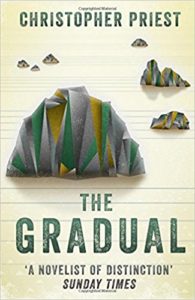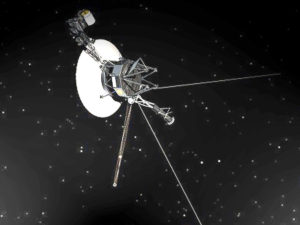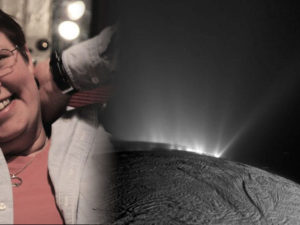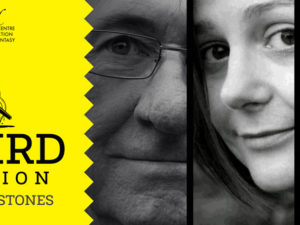
By David Hebblethwaite
The Gradual — Christopher Priest (Gollancz)
 We begin with a blank page: whether writing a novel or a piece of music; or even just living the life ahead of us, we started with nothing. Christopher Priest’s The Gradual is concerned with notions of inspiration and creation, the process of ‘nothing’ turning into ‘something’.
We begin with a blank page: whether writing a novel or a piece of music; or even just living the life ahead of us, we started with nothing. Christopher Priest’s The Gradual is concerned with notions of inspiration and creation, the process of ‘nothing’ turning into ‘something’.
As readers of the finished work we, of course, don’t begin with a blank page. We start with the first chapter, a half-page that introduces its text in the broadest of strokes: “I grew up in a world of music, in a time of war,” says Priest’s narrator. “I became an inadvertent traveller in time.” In this short chapter, Priest effectively summarises the entire novel. But this only serves to emphasise that being provided with the scaffolding is not the same as being able to walk around the whole edifice. This reflects a key aspect of The Gradual the extent to which an extraordinary experience can be captured in a linear narrative.
Back to the narrator: Alesandro Sussken lives in the Republic of Glaund, which is at war with neighbouring Faiandland. Although a semblance of normal life returns when the actual fighting is diverted to the world’s empty southern continent, the thought of war is always in the background, and the young Alesandro is at pains to avoid the draft.
A gifted musician, in time Alesandro becomes a professional composer. He enjoys considerable success, and marries a violinist named Alynna. Just about the only blot marring Alesandro’s professional life is the knowledge that his work is being plagiarised by one And Ante, a rock musician from the distant island of Temmil.
A word or two about the islands: Alesandro lives in the world of the Dream Archipelago, a recurring setting in Priest’s fiction. The vast archipelago spans the central belt of Alesandro’s world; but officially in Glaund, it doesn’t exist. Yet Alesandro has been fascinated by the islands since he first saw a cluster of three through the loft window as a child:
“I had glimpsed a distant view I had not known before: a shining sea, the bulking of unnamed islands and the possibilities they enigmatically suggested. I knew nothing of them, but the sight of them was alone enough to charge my imagination. The sounds of waves broke around me, wild ocean winds blustered, tall trees bent on shorelines and high mountains, and there were foreign voices in the towns.”
Throughout his life, Alesandro said music will often be an attempt to capture the feelings and images inspired in him by one island or another.
At one point, Alesandro is invited to join an orchestral tour of the Archipelago. Among other things about the islands, he is struck by the elaborate Shelterate (border control) procedures; and the groups of young people (some apparently the same) that congregate outside each island’s Shelterate office. Strangest of all, though, when he returns home from this nine-week tour, Alesandro finds that almost two years have passed. Both his parents have died, and Alynna has left him.
While Alesandro is trying to rebuild his life, the ruling junta of Glaund commissions him to compose a piece celebrating their tenth year in power. This goes against all his values, but the fee is more than Alesandro could ever hope to earn; so he takes the money and absconds, heading out once more amongst the islands of the Dream Archipelago. This time, he is told to speak to an adept, one of those young people outside the Shelterate offices, who reveals one of the Archipelago’s secrets to Alesandro. As well as the familiar gravitational tides, there are gradients of time–the gradual—between islands. It is possible for one to gain or lose subjective time when travelling, as happened to Alesandro on his previous tour. However, the adepts can reset the clock by taking our hapless traveller through the appropriate ritual, usually a seemingly random walk or drive—all for a fee, of course.
The concept of the gradual effectively maps time on to space within the novel—to travel between islands is to travel in time, unless you pay—but not in a way that can ever be grasped by the reader. You don’t get a map of the world, so you can’t orient yourself independently—there will be no flicking back to the beginning of this book to check where we are now. The effect is to draw one back to Alesandro’s voice and viewpoint: this is the only guide there will be, so one clings to it more closely. But it is important not to be lulled into a false sense of security.
Christopher Priest’s last few novels—2013’s The Adjacent; 2011’s The Islanders; and 2002’s The Separation—have all employed unusual novelistic structures. The Gradual is different, with its straightforward first-person narrative. This is where the unwary reader could be caught out, because Alesandro may not change his tone when recounting strange experiences rather than mundane ones—and why should he necessarily, when they’re all part of the single broader experience encapsulated in this text? So one needs to pay close attention to what’s being told, but the reward for this attentiveness is some shattering moments of reading. For an example, take the scene where the adept first explains the nature of the gradual to Alesandro. Here is someone revealing the world anew for the protagonist (and the reader) in a new voice, and it cuts clean through the text, sharp as any knife.
Running as an undercurrent through The Gradual, and acting as a counterpoint to Alesandro’s story, is the fate of his older brother Jacj. Like Alesandro, Jacj played the violin, but he didn’t have a musical career. Jacj was studying law and believed the war to be illegal; but he accepted the draft, in the hope that he could come to understand the machinery of war from the inside, and gather evidence that would help him pursue a case in the future. What happened instead is that he got parcelled off to the southern continent and simply didn’t return home.
Jacj can then be seen as an inverse image of his brother as a time traveller. Alesandro adventures far and wide, gaining and losing time as he goes; the world opens up before him. In contrast, the absence of Jacj is a void into which his family pour the passing years:
“Grief had taken my parents, denying them any pleasures of life or hopes for the future. I knew as soon as we walked in what was causing it. It was because of Jacj, still missing, still at war somewhere, years and years later. There were photographs of him on the piano—he looked like a boy, he was still a boy in those pictures.”
At one stage of his travels, Alesandro then stumbles across a young soldier who appears, impossibly, to be Jacj. The soldier denies being Alesandro’s brother, but perhaps it’s more accurate to say that he cannot allow himself to claim that identity, because of the implications it would have for the brothers’ relationship.
In these circumstances, Jacj has become the traveller who was sent to another land, and for whom time has passed differently from the rest of the world. Alesandro doesn’t want Jacj to have this fate, not just because of what it means for his brother, but because of what it means for him. This Jacj is a figure lost in time and space, just as Alesandro could so easily be. Jacj then represents not just Alesandro’s loss and hope, but also the wrong path through life —and, because time merges into space in his world, Alesandro can come face to face with the consequences of a wrong turn. But it also means that other paths remain open.
The young Alesandro felt himself draw inspiration for his music from the islands themselves; he’ll discover that, in a world where space and time remain open, the reality is more complicated than that. Perhaps there’s a clue in the older Alesandro’s view of music:
“Music for me was the voice of the human spirit. It existed only in the space between the instruments that produced it and the ear that appreciated it. It was the movement and pressure of molecules of air, dispersed and replaced instantly and unceasingly.”
In other words, the essence of music lies in the playing and listening—and therefore it is constantly being created and re-created, with each new iteration. What begins with a blank page goes on, with no recording, just moments of experience. Similarly, life goes on, turning this way and that; and, if one is lucky or makes the correct decisions, it may end up in a place that’s right for the person living it. And reading a novel like The Gradual is a dynamic experience, in that it changes with each thought in inspires; capturing an impression in words may never quite be enough—but it’s a start.
*
David Hebblethwaite is a book blogger from Yorkshire, now living in southern England. He especially enjoys reading world literature and fiction in translation. His writing has appeared in Strange Horizons, Vector, European Literature Network, Shiny New Books, and Words Without Borders. He blogs at David’s Book World.
>> Read David’s introduction and shortlist.
1 Comment
Pingbacks
-
[…] “The Gradual by Christopher Priest: a review by David Hebblethwaite” […]



